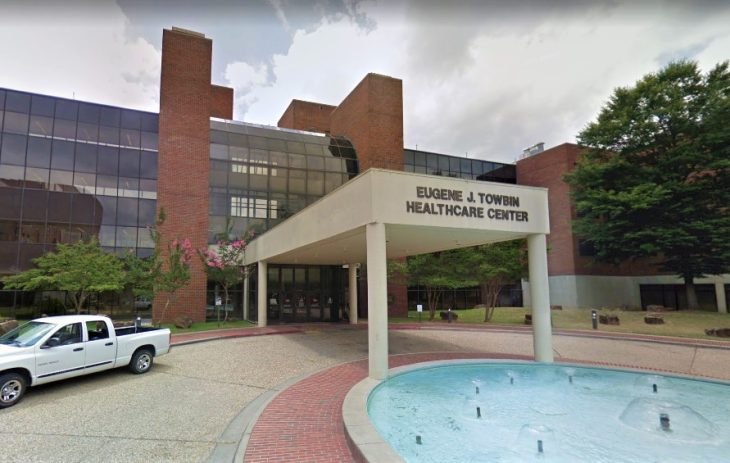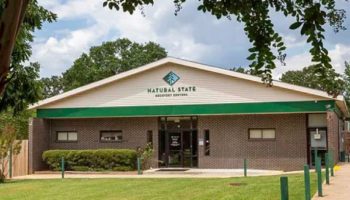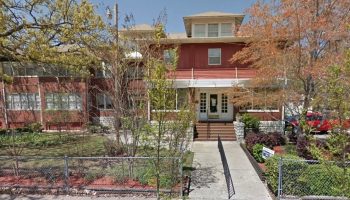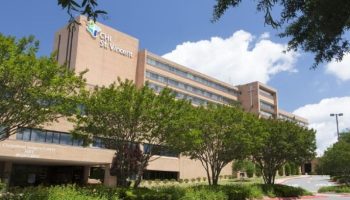About Eugene J Towbin Healthcare Center
Eugene J. Towbin Healthcare Center is an integrated VA clinic in North Little Rock, Arkansas. They honor veterans and dependents through quality healthcare delivery. You can get help with substance use disorders here regardless of what stage you’re in your recovery journey. They offer both inpatient and outpatient levels of care to help you heal.
These programs also include support for veterans with co-occurring disorders. A comprehensive intake assessment helps their staff tailor care to your unique condition while keeping things confidential. Their inpatient program may involve medical detox to stabilize you followed by therapy to support recovery.
This level of care requires you to stay in their residential facility temporarily and is suitable for tackling severe substance use issues. You’ll attend therapy sessions and addiction education classes while onsite. This helps you build strong coping skills and avoid relapse. Their care team will provide 24/7 support and guidance as you navigate recovery.
They can even offer medication assisted treatment (MAT) as part of your tailored care. This technique uses FDA approved meds to help you manage painful withdrawal symptoms and curb cravings. This is a proven method of treating addiction to opiates and alcohol. It addresses the physical and psychological symptoms and ensures holistic healing.
Most veterans complete the inpatient care and continue with the outpatient program to ensure complete support. You can also opt for this level of care if you need support for mild substance use issues. You’ll live at home and attend regular appointments and support groups. They even offer telehealth care if you can’t make it in-person.
Many complementary therapies that can help your long term recovery are available via their whole health program. This ranges from acupuncture and meditation to yoga, massage therapy, and nutritional counseling. These programs equip you to take charge of your health, wellbeing and quality of life. There’s a VA gym on one side of the center and Emerald Park Trailhead on the other if you want to get some exercise indoors or outdoors.
I think the most appealing thing about this clinic is their range of specialized services. Most of these target underserved, poor and marginalized veterans. They have programs specifically designed for homeless veterans or those at risk of homelessness. Qualifying veterans can receive transitional or permanent housing, financial support and job training/life skill development.
They also have a program for PTSD survivors and LGBTQ+ veterans. The latter includes HIV/STI testing or treatment, hormone therapy and substance use, or mental health care. On a broader note, the clinic offers many recovery support services that can set you up for lasting healing. For instance, the veteran readiness and employment programs can set you up for a lucrative career. This initiative provides vocational assistance, supported employment and transitional work.
More helpful community resources that can help your recovery are available through their social services. This includes housing assistance, legal aid and transportation support. The clinic accepts Medicare, Medicaid and TRICARE to make care accessible for many veterans. They even offer same-day help and accept walk-in express care for emergencies.
Levels of Care
-
Inpatient
Inpatient and residential programs provide round-the-clock medical and emotional support as you live at the treatment facility. This level of care may be recommended if you have severe addictions or mental health conditions since it removes outside distractions and allows you to focus solely on therapy.
-
Outpatient
In outpatient therapy, you’ll attend therapy sessions several times each week while living at home. This is ideal if you have a strong support system and a lower risk of relapse. Outpatient treatment offers flexibility to maintain work, school or family obligations.
-
Aftercare
Aftercare programs provide ongoing support after you complete a rehab program. They may include several components to help you maintain sobriety including therapy, community support groups and relapse prevention strategies. This gives you a network of resources as you reintegrate into your daily life.
-
Dual Diagnosis
Dual diagnosis programs address substance use disorders and co-occurring mental health conditions simultaneously. This integrated approach to care improves the likelihood of long term recovery and stability by addressing the root causes of addiction.
-
Intervention
An intervention is a structured and professionally guided conversation with an individual who is struggling with addiction. During the conversation, family and friends will encourage you to seek treatment. This is often a pivotal step for those resistant to getting help.
-
Sober Living
Sober living homes provide a supportive and substance free environment for you to live in as you overcome your addiction. Residents must follow house rules and support each other's recovery journeys. Sober living fosters accountability and stability during this critical phase of recovery.
Detox Service Setting
-
Inpatient Detox
Inpatient detox occurs in a dedicated treatment facility. You’ll live there around the clock and receive intensive medical support and supervision to help manage your withdrawal symptoms. It is suitable for individuals with moderate to severe addictions as it ensures a stable detox environment.
-
Outpatient Detox
Outpatient detox gives you access to medically supervised withdrawal services while still allowing you to live at home. You’ll attend a clinic for treatment and monitoring. This flexible option is suitable for those with mild to moderate withdrawal symptoms who have strong support systems.
Programs
-
Adult (18+)
Adult programs address the substance use and life challenges specific to adults. Therapists can deliver sessions in individual, group and family settings. Services often include job support and life skills training in a structured environment.
-
Alcohol Detox
Alcohol detox programs offer medical support to help individuals withdraw safely from alcohol. Your care team may use medications to ease your symptoms and provide medical monitoring to address complications.
-
Cognitive Behavioral Therapy
Cognitive behavioral therapy focuses on changing harmful thought patterns and behaviors associated with addiction. You’ll learn healthier coping mechanisms by identifying and replacing negative thoughts. This improves your emotional resilience and decreases your relapse potential.
-
LGBTQ Friendly
LGBTQ friendly programs create an inclusive and affirming space for recovery. Treatment is sensitive to issues like discrimination and stigma. You’ll receive support and therapy that respects and acknowledges your unique experiences.
-
Men
Men's programs address substance use while also considering the social pressures, family roles and mental health concerns that are specific to men. You’ll learn healthy coping mechanisms as you build emotional resilience and develop communication skills.
-
Military / Veterans
Military and veteran programs offer specialized support for clients who served in the armed services. Programs focus on reintegration and healing within a structured and supportive environment that acknowledges the unique struggles of military life.
-
Opioid Detox
Opioid detox uses medications to ease severe withdrawal symptoms. It also includes medical supervision to help you manage potential complications. These services allow you to stabilize and begin a recovery plan.
-
Seniors (65+)
Senior programs address the unique needs of older adults like chronic pain, grief and isolation. Programs include peer support and medical oversight for age related health concerns. The goal is to improve quality of life and promote sober aging.
-
Women
Women's programs offer a safe and supportive space to focus on gender specific issues such as trauma, family roles and mental health conditions. Therapists tailor the sessions to address women's needs and foster empowerment in a healing and nurturing environment.
-
Young Adult (18 - 25)
Young adult programs are designed for individuals who are transitioning into adulthood. Topics of discussion typically include identity, independence and peer relationships. Providers may also offer life skills training and career support.
Payment Options
- Payment Assistance
- Medicaid
- Medicare
- Military Insurance
- Private Insurance
- Self Pay
Accreditations
-
 SAMHSA
SAMHSA
-
 Joint Commission
Joint Commission
-
 CARF
CARF
Amenities
- Acupuncture Room
- Private Transportation
Contact
2200 Fort Roots Drive
North Little Rock, AR 72114





